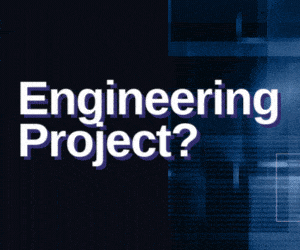
University graduates and professionals sometimes talk about not being selected in an organization despite having good academic records, required skill sets and communication skills.
As per my observation and experience, gone are the days when organizations were only looking for good academic records and technical skills. I am not saying that technical skills and good academic records are not required. Technical skills are required as that make us job-ready and good academic records reflect sincerity of candidate. In addition to both of these, nowadays Emotional Intelligence plays a vital role to get selected in an organization.
What is an Emotional Intelligence?
Emotional Intelligence is an ability of an individual to understand emotions of self and emotions of others. A person with emotional intelligence can effectively express own emotions and control them. He can understand others people emotions and can interact with them more effectively. For example, a subordinate having low self-esteem requires a timely appreciation for the work he carried out successfully by his team leader.
Why Organizations assess candidate’s Emotional Intelligence?
A couple of years back to take a leap in my career I was going through skills required in one of the Multinational Company. In that, I found “Conflict Management” as one of the key skill requirement. An emotionally intelligent person can effectively manage conflictions with the customers, which could turn out to be beneficial for the company in terms of maintaining customer relationship.
Here are some few reasons that an organization requires to have emotionally intelligent employee:
- An emotionally intelligent employee can work effectively in a team.
- Can be more transparent and be open for communication.
- Adaptability to change in work environment.
- Emotionally intelligent employees know their strengths and weaknesses.
- Empathy for other people’s feelings. Such employee can build a good relationship with co-workers and customers.
- Emotionally Intelligent employees have great self-esteem. Employees having great self-esteem probably do not compare themselves with others. Comparison in any way is not at all positive. Comparison generates energies like jealousy, insecurity, and even guilt sometimes within the person. These energies are very negative and thus creates negative work environment.
- Can work under stressful situations.
- An emotionally intelligent employee keeps a friendly relationship. This thing I have observed when current Honourable Prime Minister of India Mr. Narendra Modi was addressing board exam students of India. Before starting his speech, he said students to consider him as their friend and not the Prime Minister of the country. Friendly relationship opens up the communication between two individual.
How to Cultivate Emotional Intelligence?
There are few strategies to improve emotional intelligence as mentioned below:
Meditation
This is my personal experience. Meditation increases emotional intelligence. Stress releases hormones like Cortisol, which reacts, with our good hormones. Doing meditation in an effective way balances the required hormones in our body and nullifies unwanted hormones. To accomplish any work and to combat any harsh situation we must have a higher energy level, which can be achieved by meditation.
Increase self-awareness
We should learn to monitor our reactions to situations we are facing. We must honestly analyze our strengths and weaknesses. Focusing on strength and improving weaknesses is the key to success.
Learn to react
I have observed in my career that some team leaders’ outburst their emotions on their subordinates due to work pressure. Doing this, they plummet their credibility. Researchers have proved that those who practice meditation effectively can work under stressful conditions with ease. Effective mindfulness practice makes our mind to work at moderate speed. We can choose our thoughts and react accordingly. I have observed this in my ex-team leader. He never scolded us badly for mistakes we had committed no matters how much big they are, he usually finishes off saying, “don’t repeat again”.
Listen to others
An emotionally intelligent employee listens and understands the emotions of another colleague without judging them in a negative manner. Team leaders having this habit allows them to connect with their subordinates.
Motivate others
An emotionally intelligent leader help his subordinates to work with their strengths and improve weaknesses. He gives timely appreciations to his subordinates to keep them motivated for the work they are doing.
How do organizations assess candidate’s Emotional Intelligence?
Behavioral questions are asked by the interviewer to assess the emotional intelligence of the candidate.
There is quite a long list of behavioral questions out of which few of them are listed below:
- What are strengths and weaknesses? What do you do to overcome your weaknesses?
- What motivates you to do work?
- Have you been criticized? If yes, how did you tackle it?
- How would you describe yourself?
- Have you worked in a stressful situation? How have you tackled that situation?
- Who is your role model and why?
- If you have been provided two tasks how you would decide which one to be given priority?
Reference
- Daniel Goleman, “Emotional Intelligence – Why it can matter more than IQ?”, Bloomsbury.






